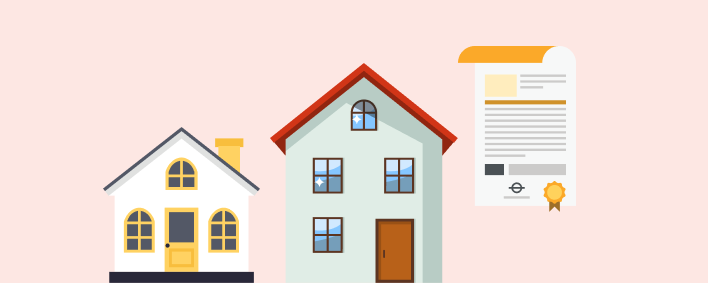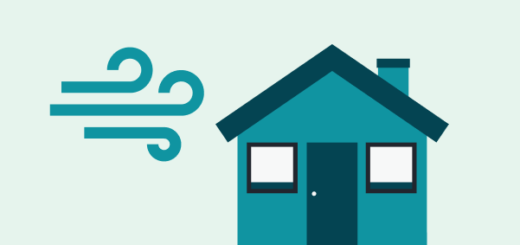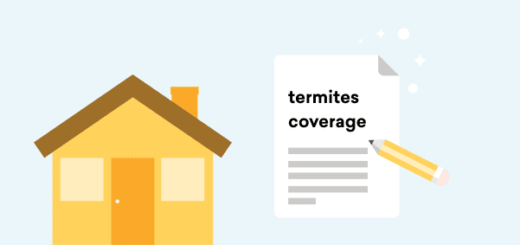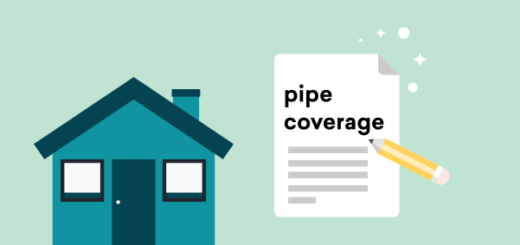Second Home Insurance: Insuring Your Vacation Home
Our goal is to give you the tools and confidence you need to improve your finances. Although we receive compensation from our partner lenders, whom we will always identify, all opinions are our own. By refinancing your mortgage, total finance charges may be higher over the life of the loan.
Credible Operations, Inc. NMLS # 1681276, is referred to here as “Credible.”
Even if you only spend a few weeks a year in your second home, you’ll want to make sure to have an insurance policy to cover it. This protects your investment and keeps you from having to dig deep into your pocket to repair or replace it if a fire or other covered event causes damage.
Here’s what you need to know about second home insurance:
What is second home insurance?
Second home insurance is a homeowners insurance policy you carry for a property you own other than your principal residence, like a vacation home. You’ll generally need a second policy — separate from the homeowners insurance policy on your primary residence — for your second home, since most lenders require it.
Like standard homeowners insurance policies, your second home policy will cover the structure of your home and the contents within it. Your second home insurance policy will also cover your liability if someone injures themselves while on your property.
Credible makes it easy to compare homeowners insurance rates from top carriers.
Why do you need vacation home insurance?
Second home or vacation home insurance is crucial for protecting your property. In many ways, a second home can be riskier than your primary residence.
For one, you may only visit your second home for a limited time each year. You may not be there if something happens, like a water leak, that can cause damage. Vacation homes also tend to be in hazard-prone areas, like near the beach. You may face a greater risk of flooding or wind damage in these locations.
On top of that, second homes have a higher chance of burglary, since the home sits empty for long periods of time. Without vacation home insurance, you’d be on the hook to pay for all the costs of repairing or replacing the home.
Check Out: How to Compare Home Insurance Quotes
What does second home insurance cover?
Second home insurance is very similar to the policy you carry on your primary residence, including what it covers. However, second home insurance may not be as comprehensive as the policy on your primary residence.
Homeowners insurance policies generally cover perils, or potential causes of damage. Second home insurance typically only covers named perils, meaning your insurance only covers specific perils that are listed in your policy.
Perils that homeowners insurance usually protects against include:
- Fire and smoke
- Lightning
- Explosions
- Civil unrest
- Crimes like vandalism and theft
- Volcanic eruption
- Falling objects
- Weight of ice, snow, or sleet
- Windstorms or hail
If the cause of damage falls within those parameters, your second home insurance will pay according to the policy you have. A basic home insurance policy includes a package of different coverages in different areas. These typically include the following:
- Dwelling coverage: Also known as Coverage A, this protects the structure of your home and the major components, like HVAC and plumbing.
- Other structures coverage: Coverage B protects any other buildings you may have on your property, like a garage, shed, or gazebo.
- Personal property coverage: Coverage C protects all the items you have inside your home, including your furniture, clothes, sports equipment, and most other basic things you have.
- Additional living expenses coverage: Coverage D helps you pay for all the additional expenses that damage leads to when your home becomes uninhabitable, like storage space or hotel stays.
- Liability coverage: Coverage E pays for your legal expenses and any damages you must pay if someone outside your household sues you for sustaining injuries while on your property.
- Medical payments coverage: Coverage F pays for the medical bills of someone outside your household who injures themselves while on your property.
Learn More: Other Structures Coverage: What It Is and What It Covers
What does second home insurance exclude?
While your second home insurance policy will generally cover a wide range of circumstances, you’ll want to take care to examine what it doesn’t cover.
Homeowners insurance policies usually have exclusions, or things that they don’t cover. If your second home insurance policy has named-perils coverage, it doesn’t cover anything that’s not listed.
Common exclusions in homeowners insurance policies include:
- Flooding
- Earthquakes
- Sewer backups
- Damage from lack of maintenance
- Normal wear and tear
Riders for second home insurance
Depending on the location of your second home and what you have inside, you may need to purchase additional coverage, or insurance riders. This often includes flood insurance, which your mortgage lender may require if your second home is in a high-risk flood area. You may also consider buying earthquake insurance, even if you don’t live near a fault line. The premium you pay for this coverage will vary depending on the risk level in the area.
The personal property coverage component of second home insurance policies limits your coverage on particularly expensive items or collections, like stamp collections, coin collections, rare works of art, furs, or jewelry. You’ll usually need to buy a separate insurance rider to adequately cover these items.
Check Out: High-Value Home Insurance: When Do You Need It?
Do you need additional insurance if you rent out your vacation home?
Yes, you’ll most likely need additional insurance if you rent out your vacation home. Second home insurance policies generally apply only if your home is owner-occupied, meaning you’re the one using it. If you decide to rent out your vacation home, you may need an additional rental home policy.
Some insurance carriers require temporary rental or short-term rental insurance riders that’ll cover you if something happens to your home while you’re renting it out. If you plan to rent your second home out on a more long-term basis, you may need a landlord or rental dwelling policy. Talk to your insurance provider before renting out your second home to find out what coverage you’ll need.
How much does second home insurance cost?
Due to the risks of insuring a second home, these policies can be as much as two to three times the cost of a primary homeowners insurance policy. You may pay between $2,000 and $3,000 per year for second home insurance.
Meanwhile, the average cost of homeowners insurance in the U.S. was $1,278 per year, or $106.50 per month in 2019, according to the National Association of Insurance Commissioners.
Learn More: How to Buy Homeowners Insurance
Factors that affect second home insurance
The actual price you pay for second home insurance will depend on a range of factors. Some common ones include:
- Location: A home’s susceptibility to risk can depend greatly on its location, and this is especially true for vacation homes. For example, if your home is in a remote area, it may be more difficult for fire department services to arrive if necessary, increasing your cost. Homes near waterways may also face a greater risk of flooding.
- Type of home: Whether a home is a stand-alone house, townhouse, or condominium can impact the price you pay for second home insurance. Condos may have a lower insurance cost because of the oversight of the condo association, which can increase security and maintenance.
- Age of home: Older homes may have higher insurance costs due to a greater likelihood of needing repairs. Specialty building materials may also add to your costs.
- Special features: Amenities like a pool or hot tub can add to your insurance costs on a second home due to the risk they pose.
How to save on second home insurance
If you’re worried about the price of a second home insurance policy, you may be able to save some money in the following ways:
- Choose a lower-risk area. While the allure of an isolated mountain retreat may be calling to you, you may choose a home closer to town to get a cheaper insurance policy.
- Bundle insurance policies. If you choose to take out a second home insurance policy from the same carrier you use to insure your primary home or vehicle, you may be able to get a discount.
- Put in security features. Things like a home security system or fire sprinklers may get you a lower second home insurance rate.
- Shop around. Be sure to get quotes from multiple insurance providers before settling on a second home insurance policy. Different carriers may have very different policies when it comes to insuring vacation homes, and shopping around can help you find the best offer for you.
You can easily compare homeowners insurance rates from multiple carriers in minutes with Credible.
Disclaimer: All insurance-related services are offered through Young Alfred.




